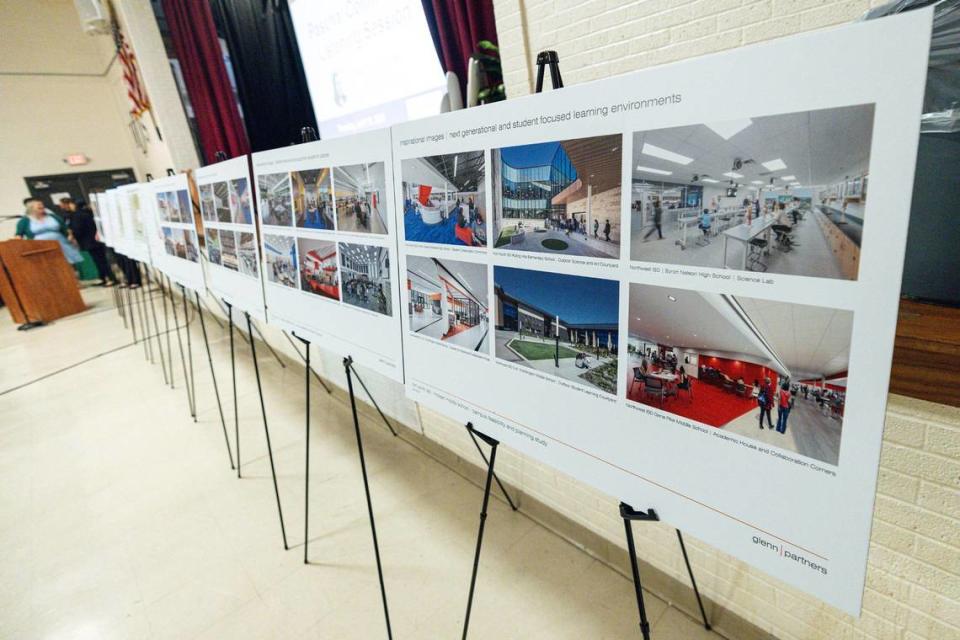Fort Worth ISD board caved on closing middle schools. It’s a bad sign for district | Opinion
If the Fort Worth ISD trustees’ recent flip-flop on consolidating middle schools is an indication of how leaders plan to meet — or duck — the challenges of a shrinking enrollment and tight budgets, the district is in deep trouble.
Officials recently laid out plans to consolidate middle schools in the North Side, Paschal and Polytechnic high school pyramids, recognizing the reality that renovating schools serving fewer students each year was wasteful. The plan was poorly laid out to the affected communities, and at the first sign of a political backlash, the board declared Tuesday, without much explanation, that it was abandoning the plan entirely.
Unwillingness to stand by tough decisions and an inability to address constituents’ complaints without completely caving will be costly. Schools must close, and cuts must be made. Waiting and hoping for a boost of enrollment after nearly a decade of decline isn’t a strategy.
The plan would have closed Daggett; Kirkpatrick and Morningside middle schools, along with the McLean Sixth Grade Center. Now, the district is slated to spend more than $150 million in borrowed money renovating schools it just decided it could do without.

We encouraged voters to approve the 2021 bond package that authorized revamping middle school facilities, and the main proposal narrowly passed. But nearly three years later, it’s clear that enrollment isn’t bouncing back after the COVID pandemic. A comprehensive reconstruction plan no longer makes sense, especially considering that inflation and competition for construction resources mean the district will get less bang for its buck than anticipated in 2021.
Plowing borrowed money into campuses that not enough students will use is unwise.
Some theorize that improving FWISD facilities will bring families back. But the enrollment decline has been consistent for nearly a decade, and it’s now to the point that the district has nearly one-fifth fewer students than in the 2016-17 school year. It’s driven by a number of factors, including birth rates, home-building patterns and increased options for charter schools and home-schooling.
Now, the district is nonsensically paying a consultant $2 million to study how to “right-size” for the future — a tacit acknowledgment that planners don’t in fact expect an enrollment rebound, even in a booming city and region — while also shelling out to retool much more middle-school capacity than it needs.
Oh, and if middle schools are untouchable, there’s a chance the district will close more high schools, perhaps even some that were renovated under a 2017 bond program.
Anyone think any of that makes good business sense?
It’s right for board members to listen to families and community leaders. Closing a school can stab at a community. The consolidation plan probably could have used tweaks, particularly on issues such as transportation.
But going forward, board members must be willing to make decisions that serve the entire district. Some areas with lagging population growth will be affected by consolidation more than others, and if trustees can be easily swayed to cancel carefully crafted plans, FWISD will languish.
It’s disappointing, too, that so little of the focus in this process has been the district’s most urgent challenge: student achievement. While small signs of progress have sprouted in recent years, FWISD remains a district that fails to properly educate far too many children. Scores on state achievement tests are stagnant at best. That, in fact, is part of the enrollment decline causing these problems: In most of the district, families with other options would be mad not to take them.
Board members hired Superintendent Angélica Ramsey not even two years ago and handed her a district with bloated administrative staff, in addition to the enrollment and academic challenges. If her team works diligently on plans to tackle these concerns head on, only to have the school board intervene, her tenure will be a failure. And good luck finding a replacement willing to clean up a mess on top of a mess.
Voters, taxpayers and parents need to hear soon from the board what the plan is for moving ahead. The problems that prompted the consolidation plan aren’t going away. In fact, as time ticks, they are getting worse.
But first, board members must ask themselves: Are they willing to stick their necks out and lead during tough times?
Do you have an opinion on this topic? Tell us!
We love to hear from Texans with opinions on the news — and to publish those views in the Opinion section.
• Letters should be no more than 150 words.
• Writers should submit letters only once every 30 days.
• Include your name, address (including city of residence), phone number and email address, so we can contact you if we have questions.
You can submit a letter to the editor two ways:
• Email letters@star-telegram.com (preferred).
• Fill out this online form.
Please note: Letters will be edited for style and clarity. Publication is not guaranteed. The best letters are focused on one topic.


